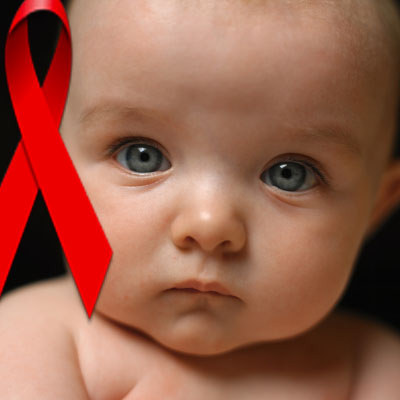UN Report Stresses need for HIV Testing in Infants
 A report released by four UN agencies to mark World AIDS Day said early HIV testing and timely treatment has shown to be lifesaving for newborns at risk of contracting HIV. The report published by the United Nations Children's Fund (UNICEF), the World Health Organization (WHO), UNAIDS and the United Nations Population Fund (UNFPA) said, "Early diagnosis and treatment can significantly improve the prospects for survival of newborn babies exposed to HIV."
A report released by four UN agencies to mark World AIDS Day said early HIV testing and timely treatment has shown to be lifesaving for newborns at risk of contracting HIV. The report published by the United Nations Children's Fund (UNICEF), the World Health Organization (WHO), UNAIDS and the United Nations Population Fund (UNFPA) said, "Early diagnosis and treatment can significantly improve the prospects for survival of newborn babies exposed to HIV."
Ann M. Veneman, executive director of the UN Children's Fund (UNICEF) said, "Without appropriate treatment, half of children with HIV will die from an HIV-related causes by their second birthday. Survival rates are up to 75 percent higher for HIV-positive newborns who are diagnosed and begin treatment within their first 12 weeks."
The report said however that fewer than 10 % of the babies born to HIV positive mothers were tested before they were two months old in the last year. The report did predict that countries like South Africa, Kenya, Malawi, Mozambique, Rwanda, Swaziland and Zambia would see an increase in early screening. Outgoing UNAIDS Executive Director Peter Piot said, "We are seeing good progress in many countries, especially in parts of Africa, but we need to significantly scale up HIV testing and treatment for pregnant women," he said.
WHO Director-General Margaret Chan said, "Today, no infant should have to die of AIDS. We know how to prevent these tragic deaths, but now we need to focus on strengthening our health-care systems to ensure that all mothers and children receive treatment as early as possible."
The report said looking at the brighter side countries such as Kenya, Malawi, Mozambique, Rwanda, South Africa, Swaziland and Zambia, which were hardest hit by HIV/AIDS have introduced early HIV testing for infants while many more low-and middle-income countries were using dry blood spot filter testing in 2007 than in 2005. "Such an achievement was unthinkable 20 years ago, when the world was just beginning to comprehend the significance of this disease and its catastrophic impact on individuals, families and societies," she said.
Piot said that HIV has more than tripled in size and is still growing from the 10 million people were living with HIV, 20 years ago. Latest UNAIDS figures estimate that in 2008 around 33 million people are living with HIV and there are 2.7 million new infections. "For every two people who start taking treatment today, another five become newly infected," Piot said. "So instead of getting shorter, the queues of people requiring anti-retroviral therapy are getting longer."
Chan stressed the "need to focus on strengthening our healthcare systems to ensure that all mothers and children receive treatment as early as possible."